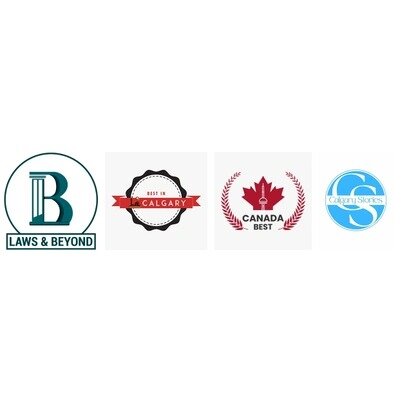Best Military Law Lawyers in Canada
Share your needs with us, get contacted by law firms.
Free. Takes 2 min.
Or refine your search by selecting a city:
List of the best lawyers in Canada
About Military Law in Canada
Military Law in Canada refers to a body of laws and regulations that govern the conduct of the Canadian Armed Forces (CAF) and ensure the maintenance of military discipline. It comprises both domestic statutes and regulations, and international laws. The cornerstone of Military Law in Canada is the National Defence Act, which establishes the legal framework for the organization, training, and deployment of the CAF, as well as disciplinary processes under the Code of Service Discipline.
Why You May Need a Lawyer
Military personnel or their families may require legal assistance for several reasons, including:
- Facing disciplinary charges under the Code of Service Discipline.
- Dealing with administrative issues such as release from service or grievances.
- Understanding the implications of international deployment and related legal rights.
- Seeking advice on military pensions, benefits, or health care entitlements.
- Addressing allegations of misconduct, harassment, or discrimination within the military.
Local Laws Overview
Key aspects of Canadian Military Law include:
- National Defence Act: The primary legislation for defense and military operations in Canada, it includes the Code of Service Discipline that outlines penalties for service offences.
- Code of Service Discipline: Part of the National Defence Act, it establishes procedures for handling offences by military personnel, ensuring discipline, and maintaining order.
- Military Justice System: Similar to civilian criminal processes but adapted for the military context, including summary trials and courts martial.
- Policies and Orders: Specific directives issued by the Department of National Defence and CAF, providing guidelines on conduct and operations.
Frequently Asked Questions
What is the difference between civilian law and military law?
Military law includes specialized rules and procedures focusing on military discipline, which are not present in civilian law. While it reflects many civilian legal standards, its context and application are tailored to the needs of the military.
Who is subject to military law in Canada?
All members of the Canadian Armed Forces, including regular force, reserve force, and some civilian employees, fall under military law. Certain laws and policies also apply to military dependents when in military environments.
What is a court martial?
A court martial is a legal proceeding similar to a civilian criminal trial, conducted under military law to adjudicate serious offences under the Code of Service Discipline.
Can military personnel have legal representation?
Yes, military personnel have the right to legal representation. The Directorate of Defence Counsel Services provides legal services to Canadian military members facing charges.
What is a summary trial?
A summary trial is a military court process for resolving less serious charges quickly and without the need for a formal court martial. It is intended to maintain discipline efficiently.
Are there legal protections for whistleblowers in the military?
Yes, the CAF has policies to protect individuals who report misconduct or wrongdoing, including protection from retaliation.
How can complaints be made about harassment or discrimination in the military?
Service members can file formal complaints through the chain of command or use specific CAF resources dedicated to handling harassment and discrimination issues.
What is the role of the Military Police?
The Military Police are tasked with enforcing laws and regulations on Canadian defence establishments, ensuring discipline, and investigating military offences.
How are international laws relevant to Canadian Military Law?
International laws, such as the Geneva Conventions, impact Military Law by governing the conduct of military personnel during international operations, including rules of engagement and treatment of prisoners.
What are the consequences of being found guilty under military law?
Consequences can range from fines and demotion to imprisonment and dismissal from service, depending on the offence's severity.
Additional Resources
For those seeking further information or assistance regarding Military Law, consider these resources:
- Directorate of Defence Counsel Services
- Office of the Judge Advocate General
- Canadian Forces Military Police Group
- Canadian Forces Ombudsman
Next Steps
If you require legal assistance with a military law issue, the following steps may be helpful:
- Contact the Directorate of Defence Counsel Services to inquire about your right to legal representation.
- Seek guidance from a qualified civilian attorney who specializes in military law if you need additional legal counsel.
- Engage with support groups or advocacy organizations for service members who can offer advice and resources.
- Consult with the Canadian Forces Ombudsman if you have concerns about fairness or justice within the military framework.
Lawzana helps you find the best lawyers and law firms in Canada through a curated and pre-screened list of qualified legal professionals. Our platform offers rankings and detailed profiles of attorneys and law firms, allowing you to compare based on practice areas, including Military Law, experience, and client feedback.
Each profile includes a description of the firm's areas of practice, client reviews, team members and partners, year of establishment, spoken languages, office locations, contact information, social media presence, and any published articles or resources. Most firms on our platform speak English and are experienced in both local and international legal matters.
Get a quote from top-rated law firms in Canada — quickly, securely, and without unnecessary hassle.
Disclaimer:
The information provided on this page is for general informational purposes only and does not constitute legal advice. While we strive to ensure the accuracy and relevance of the content, legal information may change over time, and interpretations of the law can vary. You should always consult with a qualified legal professional for advice specific to your situation.
We disclaim all liability for actions taken or not taken based on the content of this page. If you believe any information is incorrect or outdated, please contact us, and we will review and update it where appropriate.
Browse military law law firms by city in Canada
Refine your search by selecting a city.
















